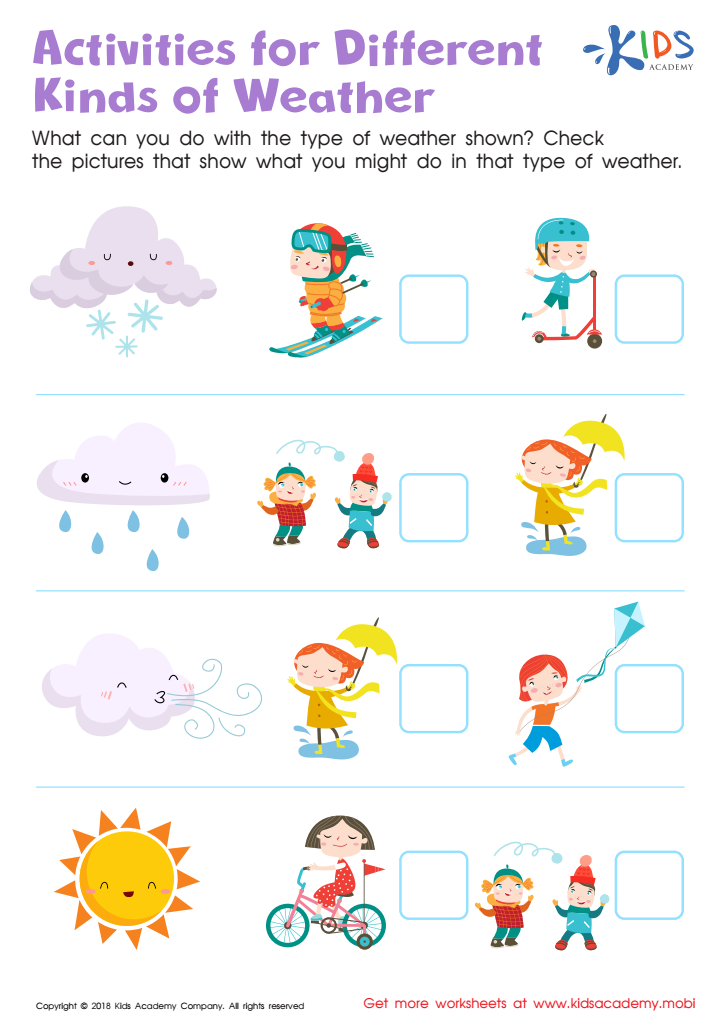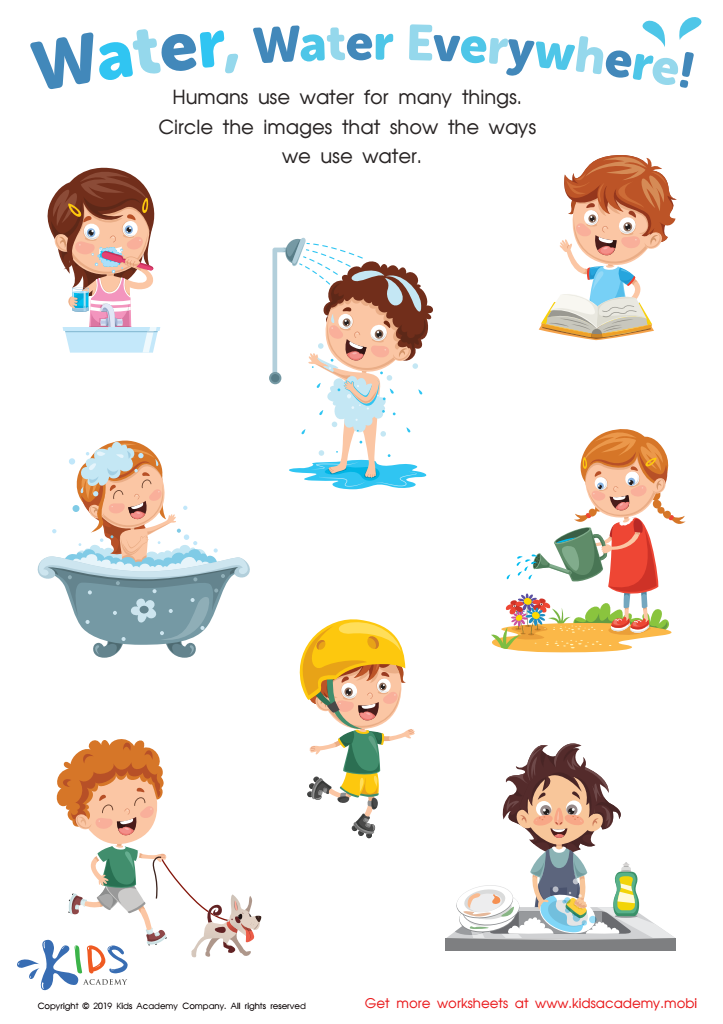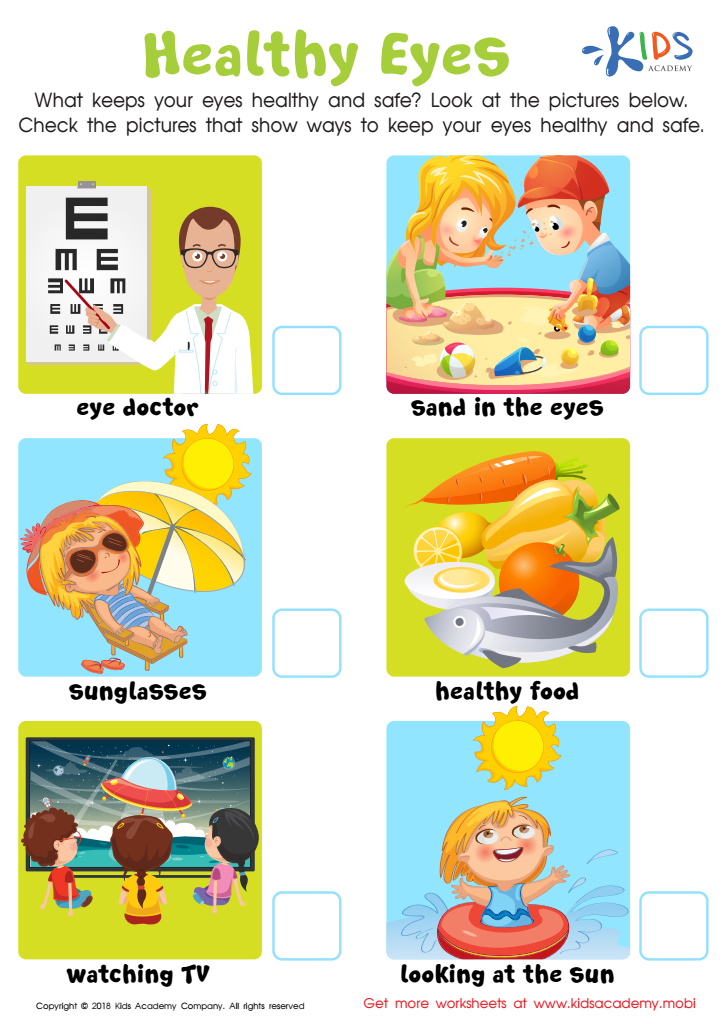Critical thinking skills Normal Science Worksheets for Ages 3-4
3 filtered results
-
From - To
Enhance your child's critical thinking abilities with our engaging Normal Science Worksheets, specifically designed for ages 3-4. These interactive activities foster curiosity and problem-solving skills while introducing fun science concepts. Young learners will explore essential topics through puzzles, matching, and drawing exercises that challenge their reasoning and observation capabilities. Our worksheets encourage creativity and enable children to think independently as they analyze and interpret information. Ideal for both classrooms and home learning, these resources offer a playful approach to developing foundational critical thinking skills essential for academic success. Begin nurturing your child's inquisitive mind today with our delightful science worksheets!


Activities for Different Kinds of Weather Worksheet


Water, Water Everywhere! Worksheet


Healthy Eyes Worksheet
Parents and teachers should care about critical thinking skills in early science education for children ages 3-4 because this foundation lays the groundwork for lifelong learning. At this stage, children are naturally curious, and introducing them to critical thinking through "Normal Science" encourages explorative problem-solving and inquiry.
When children engage with the world around them, they begin to ask questions, make observations, and explore concepts like cause and effect. This process nurtures their cognitive abilities and promotes independent thinking. By supporting critical thinking, parents and teachers help children develop skills such as analysis, synthesis, and evaluation, which are essential for academic success across all subjects.
Furthermore, fostering critical thinking skills in early learners cultivates resilience and adaptability. As they learn to think critically, children become more proficient at approaching challenges, leading to increased confidence and enthusiasm for learning. This early engagement with science not only stimulates intellectual curiosity but also encourages collaboration and communication as children share findings and ideas.
Overall, investing in critical thinking during early childhood enhances children’s ability to navigate and interact with their environment meaningfully, ultimately setting a strong foundation for future academic and personal growth.
 Assign to My Students
Assign to My Students















